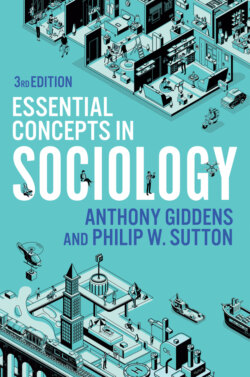Читать книгу Essential Concepts in Sociology - Anthony Giddens - Страница 63
Critical Points
ОглавлениеOne problem with critical realism is its willingness to make use of natural science knowledge. Given that they are not routinely trained in the natural sciences and are not in a position to enter debates on, say, the physics and chemistry of climate change processes, on what basis can sociologists assess this evidence? If we simply accept natural scientific knowledge, this appears to many social constructionists as rather naïve. This is especially the case as there is a long tradition within the sociology of scientific knowledge of studying the processes through which scientific consensus is arrived at. For sociologists of science, it is absolutely necessary to adopt an agnostic stance in order to maintain the relative detachment required to get under the skin of experimental procedures and other scientific methods.
There is also an internal debate within critical realism regarding the extent to which the natural and social sciences can be studied using the same method. Bhaskar himself, for instance, has argued that there are fundamental differences between social and natural sciences. He sees social structures as different from natural structures. Social structures do not endure over long periods of time and are not independent of people’s perceptions of their actions. Hence, it may be necessary to use different methods for studying social and natural phenomena. But, if this is true, then critical realism may not offer the kind of unifying approach which makes it so attractive as an alternative to postmodernism and other ‘decorative sociologies’.
